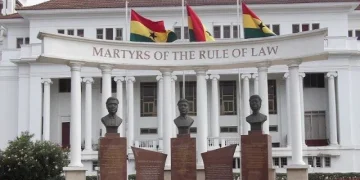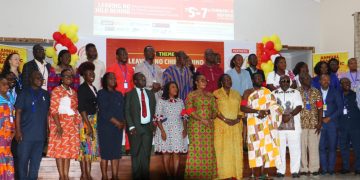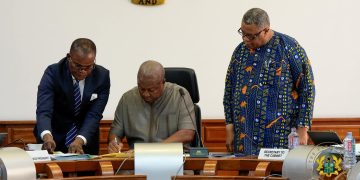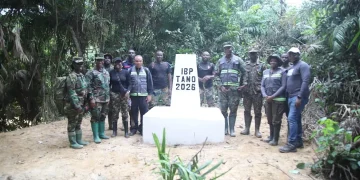The Ghana Institute of Foresters (GIF) has issued a strong call for an immediate halt to all mining activities within Ghana’s forest reserves and water bodies.
In a press release signed by GIF President, Dr. Abukari Nantogmah Attah Esq, the institute raised serious concerns about the destructive impact of both legal and illegal mining on the nation’s environment, particularly its forests and water resources.
The statement follows recent revelations by the Ghana Water Company and media outlets, including the Multimedia Group, which highlighted the severe environmental damage caused by mining operations.
GIF commended the efforts of civil society organizations and journalists like Erastus Asare Donkor for their role in exposing these issues.
The institute reminded the government of its legal responsibility to protect forest reserves, which were established to safeguard water supplies, maintain ecological balance, and support economic activities such as cocoa farming. GIF stressed that mining in these areas undermines the very purpose of the reserves, violating the Forest Act of 1927 (Cap 157).
The institute warned that Ghana’s water bodies are increasingly polluted, forcing many communities to rely on costly bottled and sachet water. GIF noted that this pollution is contributing to rising public health costs, with diseases linked to contaminated water on the rise.
Despite past government interventions, such as the 2021 executive ban on mining in forest reserves, GIF criticized the recent passage of Legislative Instrument (L.I.) 2462, which permits unlimited mining in forest reserves. The institute expressed shock at how this law has opened the door for institutionalized mining, with 12 mining leases already issued and 14 more under consideration by the Minerals Commission.
According to GIF, 37 forest reserves have been significantly affected by mining activities, including major reserves such as Uppaw Wassaw, Oda River, Apamprama, Subin Shelterbelt, and Asenanyo River Forest Reserves.
Foresters responsible for protecting these reserves have faced violent threats from illegal miners, many of whom are armed and backed by powerful individuals. In some areas, such as Desiri and Subri River, foresters have been unable to enter due to the dangerous presence of illegal mining gangs.
Below is the statement :
Source: www.kumasimail.com


































































